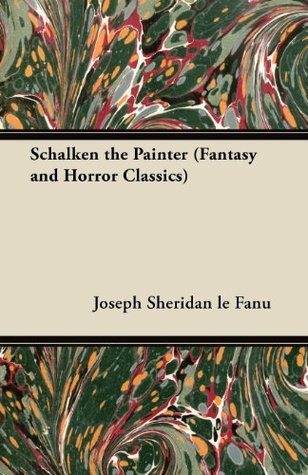Adventures in Bookland: Schalken the Painter by Joseph Sheridan Le Fanu

Many years ago, so long ago in fact that there were only three television stations and computer games had just about reached the level of lines playing ping pong, I watched a programme on one of those TV channels (BBC2 actually) that remained with me ever since. In it, a young man becomes the apprentice to a master painter in 17th century Holland. His name is Schalken and he is ambitious and avaricious. He falls in love with his master’s daughter but, being penniless, he can offer little in the way of prospects. Despite his penury, the girl still looks kindly on young Schalken but then his hopes are dashed when a suitor, a strange, stiff-faced but obviously rich man comes calling, offering his master a huge sum if he will agree to his daughter’s marriage. Schalken, faced with a choice between a mad dash for love and a long lifetime of shared poverty, does nothing to stop the match and the girl goes, reluctantly, with her bridegroom to be – and is not heard of for a number of years.
But then, she appears at the door, in a fever of panic and fear. She has escaped, but she is sure her husband is after her. She asks for a priest and begs never to be left alone. But, as is the way, for a moment she is left alone in her room, the wind blows the door shut, it jams and when they finally open it, she has gone.
Schalken, many years later, now a successful painter himself, attends the funeral of his old master and remains in the church for a while after all the mourners leave. Then, as he is about to leave. He sees – her. The young woman he had loved, the daughter of his old master. She leads him down into the crypt and there the horrified Schalken sees the marriage bed that she has been condemned to, the bride of a dead man. In horror, he flees.
See – it stuck. So, many years later, seeing the original story, I thought I would read it. The BBC film stuck close to the Le Fanu’s original story, and the text is as unsettling as the film but without the rich, painterly light that the film makers lavished on their project. Hard to imagine the BBC making anything like that today: too slow, too wordy, too weird. But two stories, on film and page, that have lingered long in the morbid mind.
0 Comments